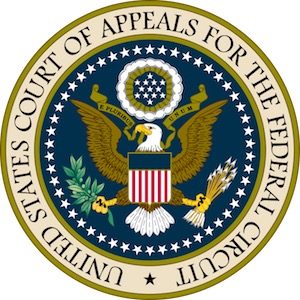 The United States Court of Appeals for the Federal Circuit recently issued a major decision interpreting provisions of the America Invents Act (AIA), specifically the AIA on-sale bar provisions. In Helsinn Healthcare S.A. v. Teva Pharmaceuticals USA, Inc., the Federal Circuit panel of Judges Dyk, Mayer and O’Malley determined: “after the AIA, if the existence of the sale is public, the details of the invention need not be publicly disclosed in the terms of sale” for the sale to be invalidating. In so reaching this ruling, the Federal Circuit has largely done away with the belief that the AIA created some kind of “safe harbor” for sales that did not disclose the details of the claimed invention.
The United States Court of Appeals for the Federal Circuit recently issued a major decision interpreting provisions of the America Invents Act (AIA), specifically the AIA on-sale bar provisions. In Helsinn Healthcare S.A. v. Teva Pharmaceuticals USA, Inc., the Federal Circuit panel of Judges Dyk, Mayer and O’Malley determined: “after the AIA, if the existence of the sale is public, the details of the invention need not be publicly disclosed in the terms of sale” for the sale to be invalidating. In so reaching this ruling, the Federal Circuit has largely done away with the belief that the AIA created some kind of “safe harbor” for sales that did not disclose the details of the claimed invention.
After first determining that a sale had occurred, the Federal Circuit turned to the language of the statute and the legislative history of the AIA. “We next address whether the AIA changed the meaning of the on-sale bar under 35 U.S.C. § 102 so that there was no qualifying sale as to the ‘219 patent,” Judge Dyke wrote.
Teva and various amici argued that the AIA did not change the law with respect to the meaning of the term “on sale,” while Helsinn and the government argued that the AIA did change the law, and so no longer encompasses secret sales and requires that a sale make the invention available to the public in order to trigger application of the AIA on-sale bar. The argument of Helsinn and the government was primarily based on the legislative history, and more specifically floor statements made during debate of the AIA.
The Federal Circuit quoted excerpts from statements by Senator Patrick Leahy (D-VT), who explained in his opinion “Section 102(a) was drafted in part to do away with precedent under current law that private offers for sale… may be deemed patent-defeating prior art.” The Court also pointed to an excerpt from then-Senator Jon Kyl (R-AZ), who explained in his opinion that the AIA precluded the extreme results that occur from “commercialization that merely consists of a secret sale or offer for sale.”
Judge Dyk explained the Court declined the invitation to decide this matter more broadly than necessary, and would limit its ruling to the issue of sales, saying nothing about public use, which was not before the panel at this time with these facts.
Dyk pointed out that there are no floor statements or anything else in the legislative history that suggest that a sale or offer for sale must itself publicly disclose the details of the claimed invention to become invalidating. To the contrary, then-Senator Kyl acknowledged in the legislative history “once a product is sold on the market, any invention that is inherent to the product becomes publicly available prior art and cannot be patented.”
Had Congress wanted to so fundamentally change the law surrounding the on-sale bar they would have, and should have done so in clear language, Dyk explained.
Tags: AIA, America Invents Act, Federal Circuit, patent, patents, prior art




You share in the PLI Practice Center community, so we just ask that you keep things civil. Leave out the personal attacks. Do not use profanity, ethnic or racial slurs, or take shots at anyone's sexual orientation or religion. If you can't be nice, we reserve the right to remove your material and ban users who violate our Terms of Service.